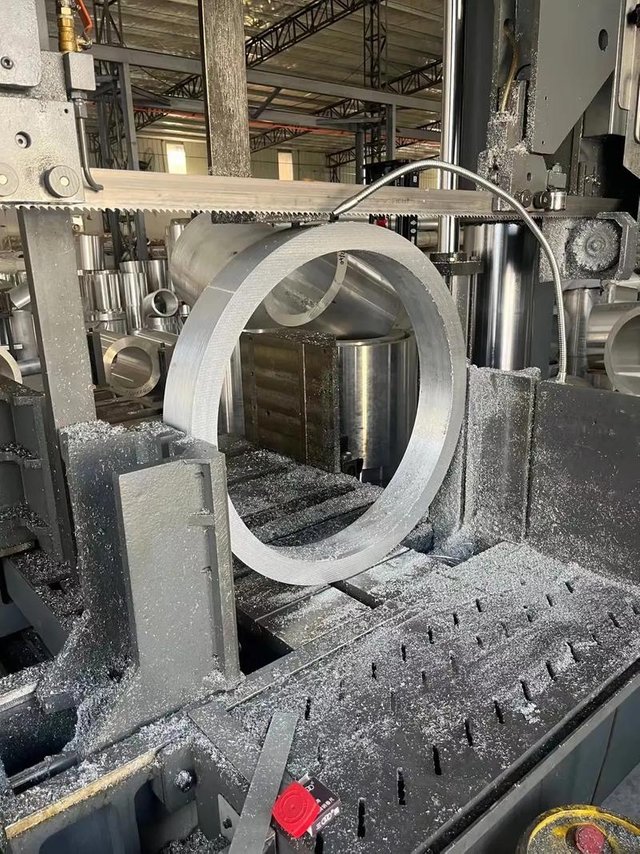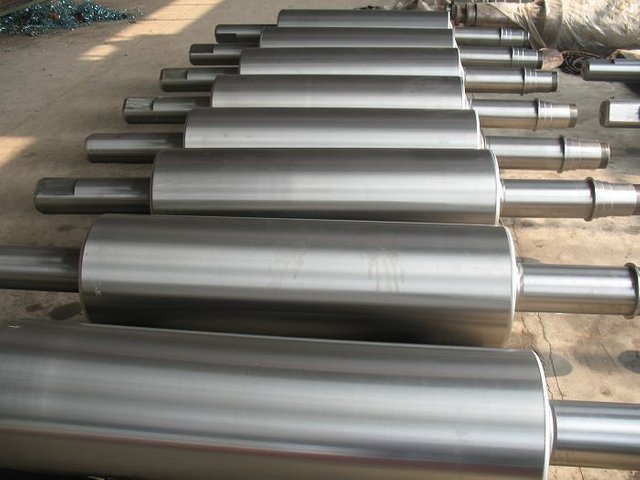Learn about Forged Metal Parts Sourcing
Today’s manufacturing industry is extremely competitive, and if manufacturing companies want to stay ahead, their products must be both cutting-edge and tough. Take aluminum forgings, for example. They are key components in industries ranging from cars to airplanes. According to recent reports, the global forging market is expected to reach a staggering $139.8 billion by 2025. And guess what? Much of this growth is due to the demand for high-quality aluminum forging parts. These forged rings are not only tough and durable, but they also effectively enhance the performance of machinery and other structural parts.
You know, forgings are crucial in many industries, shining in everything from cars to airplanes. To truly understand how they work, you first need to understand how they are made. In simple terms, it is the use of compression to shape metal, but in essence, it strengthens the material’s toughness, making it stronger and more durable. This is why forging is the first choice for critical jobs where performance cannot be compromised. These rings come in a variety of shapes and sizes to meet different needs. In the automotive industry, forging is a key process for manufacturing parts such as crankshafts and connecting rods. They must be tough enough to withstand the pressure of the engine. And it’s not just cars – in aerospace, we rely on them to create lightweight and strong parts that are essential to the safety and efficiency of aircraft. Forging applications are not limited to the mechanical field, and they are beginning to appear in other fields such as construction and marine engineering. They are used to make tools and equipment that can withstand harsh conditions.
1.Determine the quality standards of forged rings in industry
When it comes to quality standards for forged aluminum, you need to focus on factors such as material specifications, dimensional tolerances, and its mechanical properties. It is critical to be well prepared and even conduct some supplier audits to ensure that they meet standards. In addition, having a sound quality management system can build trust and ensure that the forged rings you produce are not only durable and high-performance, but also increase your operational efficiency and product life.
2.Key Materials for Manufacturing High-Quality Forgings
Forgings are mainly made of aluminum alloys, carbon steel, alloy steel, and stainless steel. A recent report published by MarketsandMarkets stated that the global forging market is expected to reach a staggering $253.7 billion by 2025, and much of this growth comes from the automotive and aerospace industries, which are always looking for top-notch materials for manufacturing their parts.
Carbon steel tends to be the material of choice for forged rings because it has an excellent strength-to-weight ratio and is also very ductile. The American Iron and Steel Institute (AISI) states that carbon steel typically contains about 0.05% to 0.25% carbon, which greatly increases its hardness and tensile strength. That’s why you’ll see carbon steel used in heavy machinery and agricultural equipment—durability is critical in these areas.
On the other hand, alloy steel forging are a mix of different elements, such as chromium, molybdenum, and vanadium, making them much better in terms of wear resistance and toughness. According to the International Journal of Materials Science, switching to alloy steel can significantly improve the performance of forged rings in harsh environments, making them ideal for oil and gas applications. Of course, don’t forget stainless steel! It has excellent corrosion resistance and is becoming increasingly popular in industries such as food processing and pharmaceuticals, where keeping products clean and durable is crucial.
Forged aluminum is an aluminum alloy material processed through high-temperature plastic deformation processes (such as hammering and die-casting). It has the characteristics of fine grains, dense structure, high strength, good toughness, and excellent processing performance. Compared with cast aluminum, forged aluminum has fewer internal defects and better mechanical properties. It is widely used in fields with high requirements for structural strength and reliability, such as aerospace, automobile manufacturing, rail transportation, military industry, and high-end mechanical equipment. Common wrought aluminum alloys include the 2xxx, 5xxx, 6xxx, and 7xxx series, which are suitable for different application scenarios with different strength, corrosion resistance, and processing requirements.
All in all, the material selection for forging not only affects the performance of the product, but also has a significant impact on production costs and life cycle management. By understanding these key materials, companies can adjust their procurement strategies to keep up with industry trends and ensure that they get forged rings that truly meet their needs.
3.Evaluating Forging Suppliers: Things to Look Out For and Questions to Ask
Therefore, when you are trying to find a top steel forging supplier, it is crucial to understand your needs. You really want to work with a reliable and experienced manufacturer. First, find out about their industry experience. Generally, suppliers who have been in business for a long time and have a good track record of producing high-quality products are more trustworthy. Also, don't forget to check out any certifications they may have - such as ISO certification, which can give you a real understanding of their quality standards and manufacturing processes.
Then, consider their production capabilities and technology. Suppliers with the most advanced machines are often able to provide higher forging precision and efficiency. It’s also worth asking what types of materials they can use, as sometimes your project requires specific materials that can withstand different stress levels and environmental conditions.
Seriously, don’t be shy about asking questions when evaluating. Find out about their lead times, minimum order quantities, and how flexible they are if you need a custom product. Getting a feel for their customer service atmosphere and whether they’re willing to help with design tweaks or production issues can make or break a relationship. By focusing on these key points, you’ll be better able to choose a metal forging company that matches your business needs.

